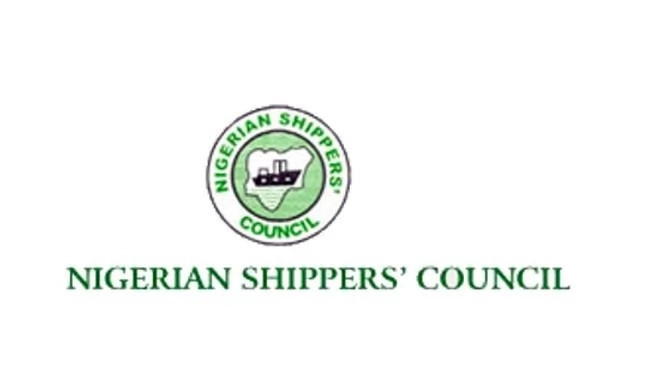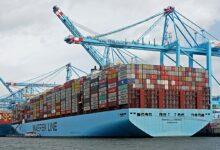9 Functions of Nigerian Shippers’ Council (NSC)
Functions of Nigerian Shippers' Council (NSC)
In this post, we look at the functions of the Nigerian Shipping Council (NSC). The NSC was established with the sole aim of regulating the Nigerian port economy with a view to ensure efficiency in port operations as well as increasing infrastructural development.
The Nigerian shipping council was also empowered to make sure that, there is adequate security, including cargo’s safety.
👉 Relocate to Canada Today!
Live, Study and Work in Canada. No Payment is Required! Hurry Now click here to Apply >> Immigrate to CanadaRead Also: 9 Functions of the National Pension Commission (PENCOM)

The reason for the establishment of the Nigerian shipping council is not limited to those responsibilities mentioned above, the duty of the council also went as far as ensuring that there is human capacity development for every player operating within the sector.
These and many more have been the mandate of the Nigerian shipping council, which it seeks to accomplish through its statutory functions, and in this article, we are going to look at a number of these functions.
Functions Of Nigerian Shipping Council
There are quite a number of functions allotted to the Nigerian Shipping Council, but I promise we are going to look at quite a number of them too, in this article together.
1. Protects The Interest Of Shippers
The Nigerian shipping council is saddling with the responsibility of ensuring that, the interest of every player within the sector is protected.
This responsibility is achieved through the provision of a forum, which saddled with the duty of protecting shippers’ interest on those areas that directly affect the shipment of exports and imports in Nigeria., that is, every shipment from and to the Nigerian nation.
Read Also: 9 Functions of the Nigerian Investment Promotion Commission (NIPC)
2. Encourages Shippers Association’s Formation:
Every profession, trade among others have their association, which works collectively towards the interest of their members, and towards achieving a common goal.
👉 Relocate to Canada Today!
Live, Study and Work in Canada. No Payment is Required! Hurry Now click here to Apply >> Immigrate to CanadaTherefore, the Nigerian shipping council is not exempted, informing shippers association, the Nigerian shipping council has a part to play.
It is the duty of the Nigerian shipping council to encourage players in the shipping sector to form their association. Therefore, this remains the function of the Nigerian shipping council, and it does this across the entire nation.
3. Provides Consultation Forum:
In the shipping sector, there are too many participants, too many operators and parties working within the sector, and some of these participants working within the shipping sector include, the federal government, and the tramp owners, as well as the Nigerian ports authority, including the conference lines and the non-conference lines.
To ensure efficient operations between and among these players within the sector, the Nigerian shipping council has an important role to play.
What the Nigerian shipping council does in this regard, is to make provision for a consultative forum, where there will be consultation between these players in the shipping sector.
Read Also: 6 Functions of the Nigerian Export and Import Bank (NEXIM)
4. Negotiates And Agrees With Players In The Sector
There can never be any meaningful success or an improvement in any business without some sort of negotiations and agreement.
Thus, in the shipping sector, there are some issues begging for negotiations and agreements.
In a situation such as this, the Nigerian shipping council does serve a great deal of purpose, and such purpose would be that the Nigerian shipping council will rather negotiate, and sometimes enter into an agreement with the players in the shipping sector.
Like I mentioned earlier, these players include, Nigerian ports authority and ship owners, as well as the conference lines and the non-conference lines, including some other organizations on issues that affect shippers’ interest within the sector.
5. Advises The Federal Government On Matters Relating To The Sector
One of the statutory functions of the Nigerian shipping council has been to advise the federal government of Nigeria.
The Nigerian shipping council can advise the federal government through its Minister, a member of the national executive council.
The Nigerian shipping council advisory role revolves around issues or matters that have to do with the fright rates’ structure and shipping space availability and adequacy of sailing frequency and availability of vessels’ quality and class and adequacy of shipment terms and availability of facilities and port charges among others.
Read Also: 10 Functions of the National Inland Waterways Authority NIWA
6. Assesses Existing Services
Another function of the Nigerian shipping council is to ensure that, it assesses the existing services within the sector, and in assessing these services, certain things are to be taken into consideration, and these are the stability of these services and the adequacy of these services.
Once the adequacy of the services and the stability of the services might have been assessed, the next step on the part of the Nigerian shipping council would be to suggest some reasonable recommendations with respect to the findings made or what it has been discovered.
7. Considers Shippers’ Problems
There are some problems faced by the shippers, and the Nigerian shipping council is aware of those challenges, and some of the factors responsible for these problems include, inland waterways transport and that of coastal transport, and other issues which have something to do with water transportation, where goods and persons are conveyed from one destination to the other.
The Nigerian shipping council has the responsibility of considering these problems facing shippers, and on identifying them, it is in the duty of the Nigerian shipping council to advise for a way forward, and the advice is made directly to the government for the purpose of proffering solutions to the problems.
8. Encourages And Promotes Research
Much of the problems and challenges encountered in any organization is normally tackled through research.
Research remains a veritable tool for solving organization problems. Therefore, going by this fact, the Nigerian shipping council has been encouraging studies into problems confronting the smooth operations within the shipping sector, such research work has been promoted with a view to unravel such problems confronting the shippers and their operations in Nigeria., and possibly proffer solutions to the problems.
Read Also: 8 Functions of Nigerian Vigilante Group
9. Organizes Seminars More Often
In its commitment to ensuring effective operations for increase productively, the Nigerian shipping council has been embarking on series of seminars, workshops, symposium, as well as conferences for the purpose of upgrading the skills and knowledge of its members for optimal operations within its functions. Such seminars are carried out regularly in order to help bridge any gap of inefficiency in operations.
Conclusion
The reason for the establishment of the Nigerian shipping council is not limited to those responsibilities mentioned above, the duty of the council also went as far as ensuring that there is human capacity development for every player operating within the sector.
These and many more have been the mandate of the Nigerian shipping council, which it seeks to accomplish through its statutory functions.





